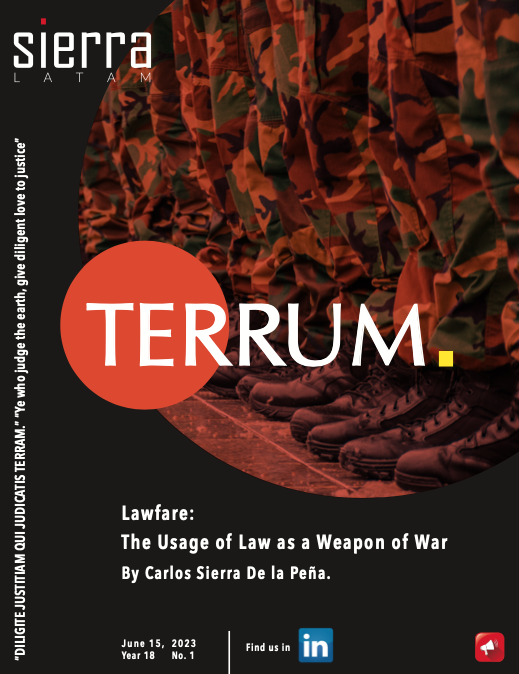The Leading
Aviation Law Firm in LATAM,
Serving Mexico, Panama, the Dominican Republic and Ecuador


SIERRA LATAM
We believe in high quality legal advice
High quality legal advice, equivalent to such in the most sophisticated legal services markets. We want you to realize that Mexico is equipped with world-class legal advisors who are willing and able to represent your business carefully, professionally, quickly, and with an in-depth and insightful knowledge of the law.
The ability and training of our lawyers and staff is paramount. We are deeply proud to be the standard bearer of aeronautical law in Mexico.


WHAT WE DO
Areas of expertise
Our firm is proud to provide its services in various areas of specialization to companies and entities from around the world looking to resolve their legal needs and requirements in Mexico.
Corporate Law, Joint Ventures, M&A, Foreign Investment and Corporate Governance
Litigation, Arbitration
& Mediation
Other areas of expertise
Aviation Law
Aircraft finance & Leasing
On July 2, Sierra Abogados proudly participated in the XXVI #carreradeabogados2025 , organized by @appleseedmex .
We’re proud to be part of initiatives that foster unity, movement, and shared purpose within the legal profession. Thank you to everyone who joined us and contributed to an inspiring evening. We look forward to the next edition!
#SierraAbogados #CarreradeAbogados2025 #AppleseedMéxico #LegalCommunity #ProBonoMX #running

Mexico’s Chamber of Deputies approved a reform to eliminate the Federal Economic Competition Commission (Cofece) and replace it with a new National Antitrust Commission under the Secretariat of Economy. Unlike Cofece, which had constitutional autonomy, the new body will report directly to the Executive.
The reform passed with 323 votes in favor and 125 against. Supporters (Morena, PT, PVEM) claim it will strengthen enforcement against monopolies. Opposition parties argue it undermines independence and violates international agreements like the USMCA.
The reform now moves to the Senate.
SOURCE: https://www.eluniversal.com.mx/nacion/diputados-avalan-creacion-de-la-comision-antimonopolio-que-sustituye-a-la-cofece-dependera-de-la-secretaria-de-economia/

On June 30, 2025, the Mexican government officially completed the merger of three entities: AICM (Mexico City International Airport), GACM (Grupo Aeroportuario de la Ciudad de México), and SACM (Servicios Aeroportuarios de la Ciudad de México). This fusion gives rise to Grupo Aeroportuario MARINA, which will now oversee operations and infrastructure previously managed by the other two entities.
The new group will control multiple airports (CDMX, Colima, Ciudad del Carmen, Obregón, Guaymas, Loreto, Matamoros), plus stakes in Toluca and Cuernavaca airports. It will also support operations in Lázaro Cárdenas and San Felipe. The group inherits all rights and obligations, including revenue from airport usage fees (TUA) used to repay MEXCAT bonds.
This restructuring aims to improve financial efficiency, operational capacity, service quality, and national connectivity.
SOURCE: https://www.gob.mx/aicm/articulos/concluye-proceso-de-fusion-para-el-surgimiento-de-grupo-aeroportuario-marina

Mexico’s Senate approved a law that gives the federal government full control over regulation and citizen data, including biometric information. The Executive will no longer require input from independent bodies or civil society.
Experts and rights groups warn the law could lead to mass surveillance and data misuse, as it lacks transparency and external oversight. While the government claims it will streamline services and reduce corruption, critics say it centralizes power dangerously.
SOURCE: https://www.elfinanciero.com.mx/empresas/2025/06/26/estado-tendra-el-control-de-la-regulacion-y-de-los-datos-con-ley-para-eliminar-tramites-burocraticos/

The Mexican peso and the Mexican Stock Exchange (Bolsa Mexicana de Valores) declined after a U.S. airstrike on Iran, triggering increased risk aversion in global markets. The peso depreciated by 0.32% to around 19.2163 per U.S. dollar, while the stock market also dropped as investors reacted to the geopolitical shock.
Analysts believe this reflects a shift toward safe-haven assets amid heightened uncertainty. The conflict’s potential economic ripple effects—on inflation, energy prices, and market stability—may influence future monetary policy if tensions persist.
SOURCE: https://forbes.com.mx/peso-y-bmv-se-debilitan-tras-ataque-estadounidense-a-iran/
#bmv #stocks #mexicanpeso #pesomexicano #devaluo #depreciation #iran #trump

Sheinbaum denies plan to remove autonomy from prosecutors
President Claudia Sheinbaum clarified that her administration does not intend to eliminate the autonomy of federal or state prosecutors’ offices. While acknowledging the need to improve their performance, she emphasized that some are already functioning well and reiterated that autonomy is key to preventing political interference.
Sheinbaum stated that any proposals questioning the prosecutors’ independence are not coming from her government and reaffirmed her commitment to strengthening — not controlling — these institutions. She also expressed openness to a national dialogue on how to improve the justice system but ruled out any immediate structural reforms that would compromise autonomy.
SOURCE: https://www.jornada.com.mx/noticia/2025/06/20/politica/sheinbaum-no-tiene-previsto-retirar-autonomia-a-las-fiscalias

Mexico Gains Edge Amid U.S. Tariffs on ChinaThe U.S. has imposed tariffs up to 55% on key Chinese imports, including EVs, batteries, and steel. In contrast, 86% of Mexico’s exports to the U.S. enter tariff-free under the USMCA, giving Mexico a significant trade advantage.
Economist Luis de la Calle noted that Mexico’s strong integration with North America and global ties make it a strategic hub. The country is now well-positioned to attract nearshoring investment and expand its role in global supply chains.
SOURCE: https://www.eleconomista.com.mx/empresas/mexico-queda-ventaja-arancelaria-china-eu-20250617-764058.html

We’re glad to share with you this month’s issue of TERRUM:
“Nepotism can wait...”
Explained to us by our associate Edgar Bezares .
#aviation #news #mexicoaviation #sierra

We’re glad to share with you this month’s issue of COELUM:
“National Implementation of Space Law:
Hard and Soft Law in Colombia and Mexico.”
Explained to us by our associate María Pardo.
#aviation #news #mexicoaviation #sierra

Mexico could become a strategic hub for air cargo aircraft maintenance by 2030, according to the head of the Federal Civil Aviation Agency (AFAC), Miguel Enrique Vallín. He stated that the Felipe Ángeles International Airport (AIFA), now the country’s largest air cargo hub, is expected to host new MRO (Maintenance, Repair, and Overhaul) facilities, with support from both private investors and the Ministry of National Defense.
Vallín also noted that cargo transport in Mexico surpassed 2019 levels by 2021, and 2024 is shaping up to be the best year for the sector. Regarding the Mexico City International Airport (AICM), he emphasized that infrastructure limitations constrain its operations, even as the government recently raised the hourly operation cap from 43 to 44 movements, a temporary measure based on current airspace restrictions.
SOURCE:
https://www.eleconomista.com.mx/sectores/Mexico-podria-ser-un-hub-para-mantenimiento-de-cargueros-AFAC-20250612-0079.html

our numbers
+30 years
high quality legal advice

- mail@asyv.com
Contact
Mexico City
- Prolongación Reforma 1190, Cruz Manca Santa Fé, 05360 Mexico City.
- +52 55 5292 7814 | +52 55 5292 7806
Cancun, Quintana Roo
- Av. Kabah, lote 18, manzana 2, supermanzana 17, local 1C, Zona Urbana Cancún, Municipio Benito Juárez, Quintana Roo.
Miami
- 20900NE 30th Ave, Suite 610, Aventura, FL, 33180
- +1 305 816 63 81
© SIERRA Latam | 2023 | Privacy Policy




